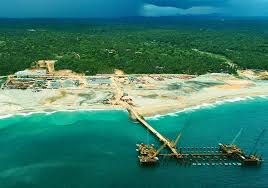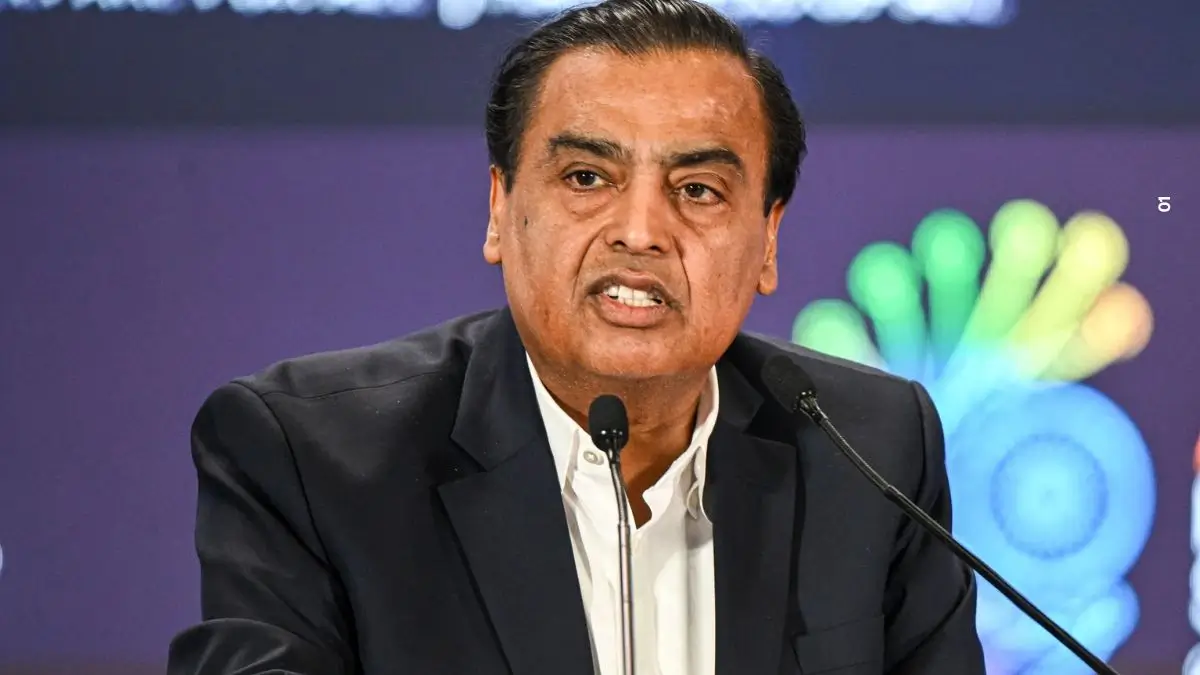Adani’s Vizhinjam Port Approved as India’s First Transshipment Hub
India’s maritime landscape is set to witness a transformative shift with the recent approval of Adani Group’s Vizhinjam Port as the nation’s first transshipment hub. This milestone decision promises to revolutionize India’s maritime trade dynamics and bolster its position as a global maritime player.
The Ministry of Shipping’s nod to Adani Ports and Special Economic Zone (APSEZ) for developing Vizhinjam Port as a transshipment hub marks a significant leap in India’s maritime infrastructure. Vizhinjam, located in Kerala, holds immense strategic importance due to its proximity to international shipping routes.
Expanding Horizons: The approval underscores India’s ambition to emerge as a key transshipment hub in the Indian Ocean region. With Vizhinjam Port poised to cater to larger vessels, it will facilitate the seamless transfer of cargo containers, enhancing efficiency and reducing logistics costs.
Boosting Trade Competitiveness: The establishment of a transshipment hub at Vizhinjam is poised to augment India’s trade competitiveness on the global stage. By accommodating larger vessels and facilitating direct connectivity to major international ports, it will streamline trade operations and attract greater shipping traffic to Indian shores.
Infrastructure Development:The development of Vizhinjam Port into a transshipment hub necessitates significant infrastructure augmentation. The project entails the construction of state-of-the-art terminals, dredging operations to deepen berths, and the deployment of cutting-edge handling equipment to ensure seamless cargo operations.
Environmental Concerns: While the approval heralds a new era in India’s maritime trade, it also raises environmental concerns. The project’s implementation must prioritize sustainable practices to mitigate adverse ecological impacts and preserve the marine ecosystem.
Conclusion: The approval of Adani’s Vizhinjam Port as India’s first transshipment hub marks a watershed moment in the country’s maritime history. As India embarks on this transformative journey, meticulous planning and sustainable practices will be instrumental in harnessing the full potential of Vizhinjam Port as a global maritime powerhouse.

Why this News is important:
Strategic Maritime Advancement: The approval of Adani’s Vizhinjam Port as India’s first transshipment hub signifies a strategic leap forward in the nation’s maritime infrastructure development. This decision holds immense significance in India’s quest to emerge as a key player in the global maritime arena.
Boost to Trade Competitiveness: The establishment of Vizhinjam Port as a transshipment hub is poised to enhance India’s trade competitiveness by facilitating smoother cargo operations and attracting greater shipping traffic. This development aligns with India’s vision to bolster its position as a preferred trade destination.
Infrastructure Development Impetus: The approval injects fresh impetus into India’s infrastructure development agenda, particularly in the maritime sector. The project’s execution will necessitate significant investments in modernizing port facilities and enhancing logistical capabilities, driving economic growth and job creation.
Environmental Sustainability Concerns: Amidst the euphoria surrounding the approval, environmental sustainability emerges as a pertinent concern. Balancing infrastructural development with ecological conservation is imperative to ensure the long-term viability of Vizhinjam Port and safeguard coastal ecosystems.
Global Trade Integration:Vizhinjam’s transformation into a transshipment hub signifies India’s integration into global trade networks. By facilitating direct connectivity to major international ports, the port will catalyze trade flows, bolstering India’s position as a pivotal player in the global supply chain.
Historical Context:
Background: Vizhinjam Port, located in Thiruvananthapuram, Kerala, has long been earmarked for development owing to its strategic location along international shipping routes. The idea of transforming Vizhinjam into a transshipment hub gained momentum in the early 2000s, with the Kerala government envisioning it as a game-changer for the state’s economy.
Development Delays: Despite initial enthusiasm, progress on the Vizhinjam Port project encountered numerous hurdles, including land acquisition disputes, environmental clearances, and funding challenges. These delays hampered the project’s timely execution, prolonging the wait for its realization.
Adani’s Involvement: In 2015, the Kerala government entered into a concession agreement with Adani Ports and Special Economic Zone (APSEZ) for the development and operation of Vizhinjam Port. Adani’s entry injected fresh momentum into the project, promising to leverage its expertise and resources to expedite its completion.
Recent Milestone: The recent approval by the Ministry of Shipping to develop Vizhinjam Port as India’s first transshipment hub marks a significant milestone in the port’s journey. It reflects the culmination of years of planning, negotiations, and perseverance, setting the stage for a new chapter in India’s maritime history.
Key Takeaways from “Adani’s Vizhinjam Port Approved as India’s First Transshipment Hub”:
| Serial Number | Key Takeaway |
|---|---|
| 1. | Vizhinjam Port has been approved as India’s first transshipment hub, signaling a strategic leap in the nation’s maritime infrastructure. |
| 2. | The approval is expected to enhance India’s trade competitiveness by streamlining cargo operations and attracting greater shipping traffic. |
| 3. | Significant infrastructure development is envisaged, including the construction of modern terminals and dredging operations to accommodate larger vessels. |
| 4. | Environmental sustainability emerges as a key concern, necessitating the adoption of eco-friendly practices to mitigate adverse impacts. |
| 5. | Vizhinjam’s transformation into a transshipment hub underscores India’s integration into global trade networks and its aspirations to emerge as a key player in the Indian Ocean region. |
Important FAQs for Students from this News
1. What is a transshipment hub?
- A transshipment hub is a port where cargo from one vessel is transferred to another for onward shipment to its final destination. It facilitates the movement of goods between different regions and enables larger vessels to reach ports with shallower depths.
2. How will the development of Vizhinjam Port benefit India’s trade competitiveness?
- The development of Vizhinjam Port into a transshipment hub will enhance India’s trade competitiveness by reducing logistics costs, improving efficiency in cargo handling, and attracting more shipping traffic to Indian shores. This, in turn, can boost economic growth and create employment opportunities.
3. What are the environmental concerns associated with the project?
- The project’s implementation may have adverse impacts on the marine ecosystem and coastal environment. Dredging operations, construction activities, and increased shipping traffic can lead to habitat degradation, pollution, and disturbance to marine life. Sustainable practices and mitigation measures are crucial to address these concerns.
4. How does Vizhinjam Port’s transformation align with India’s maritime strategy?
- Vizhinjam Port’s transformation into a transshipment hub aligns with India’s broader maritime strategy of enhancing port infrastructure, promoting coastal shipping, and integrating into global trade networks. It strengthens India’s position as a maritime power in the Indian Ocean region and supports its ambitions for economic growth and strategic influence.
5. What are the key challenges in developing Vizhinjam Port into a transshipment hub?
- The key challenges include land acquisition, securing environmental clearances, mobilizing investments, ensuring smooth project execution, and addressing stakeholder concerns. Overcoming these challenges requires concerted efforts from the government, private sector, and local communities.
Some Important Current Affairs Links

















